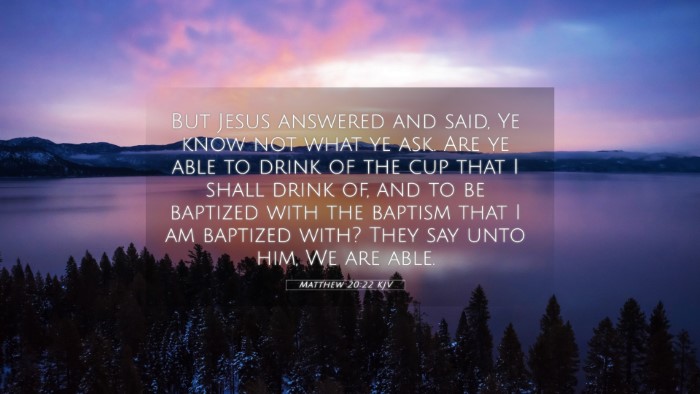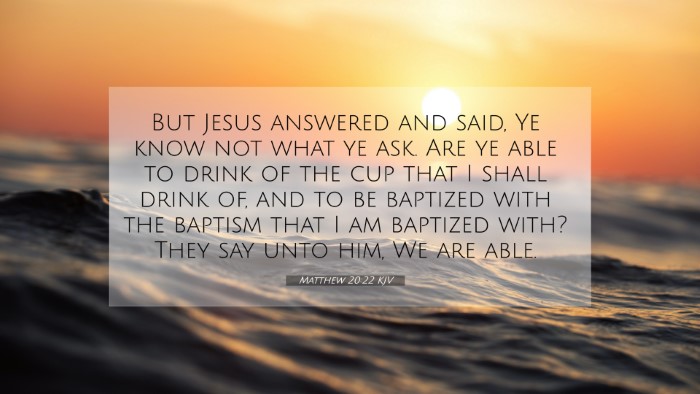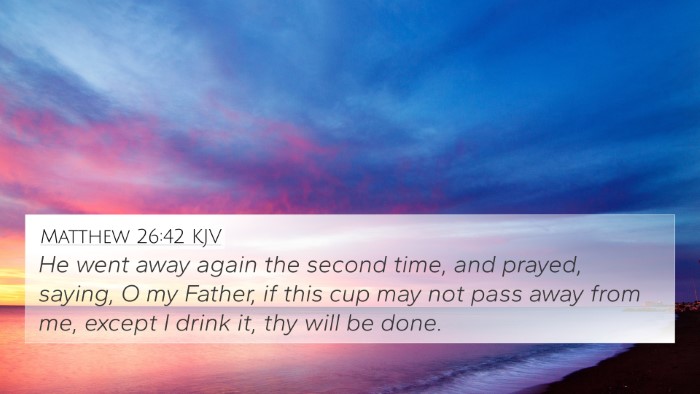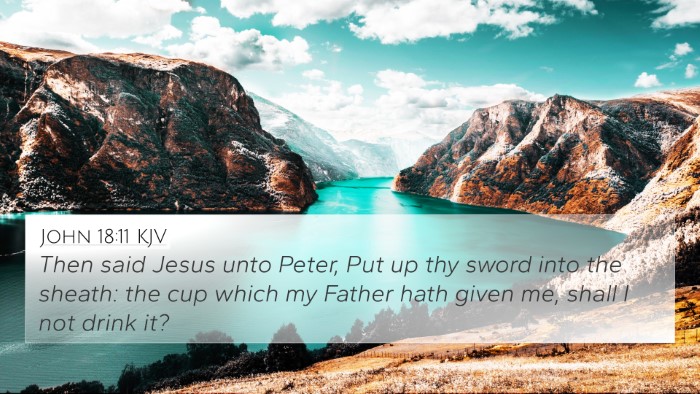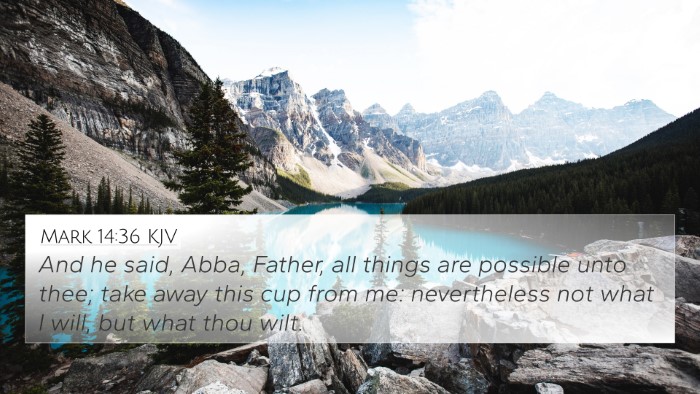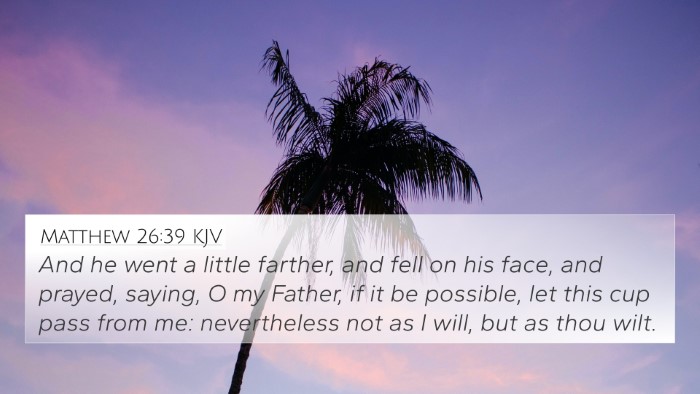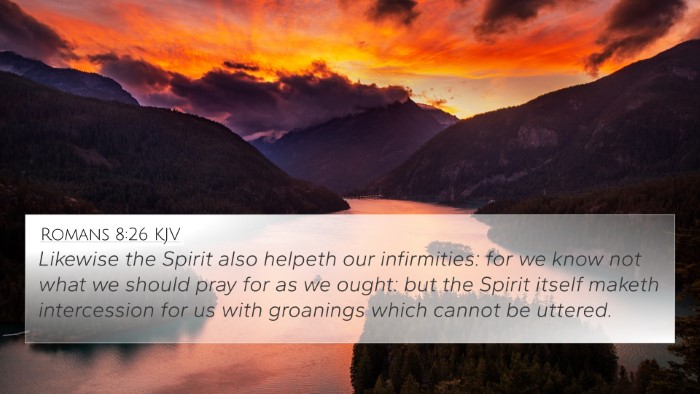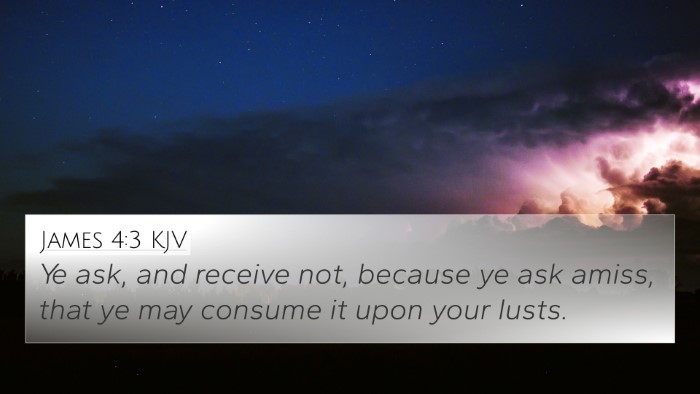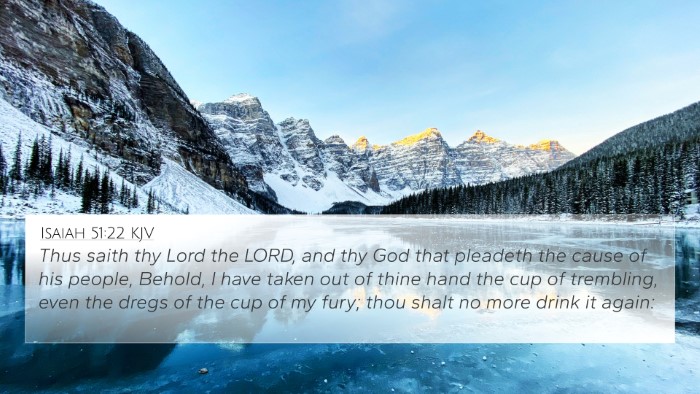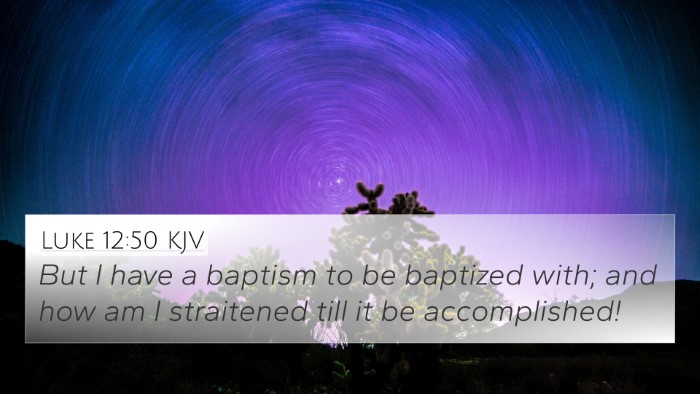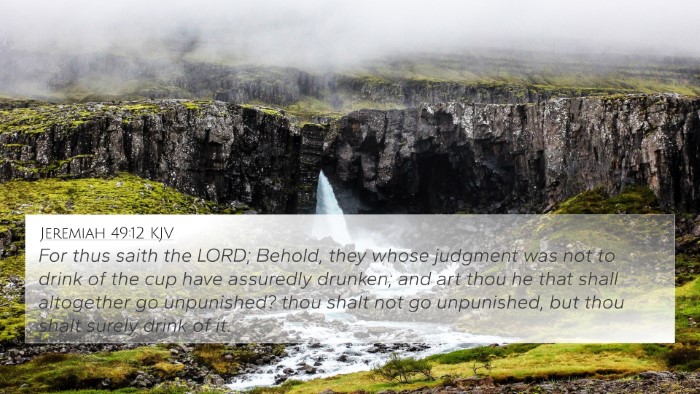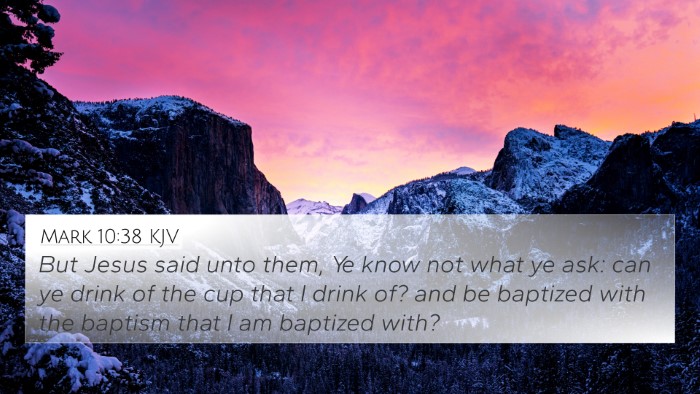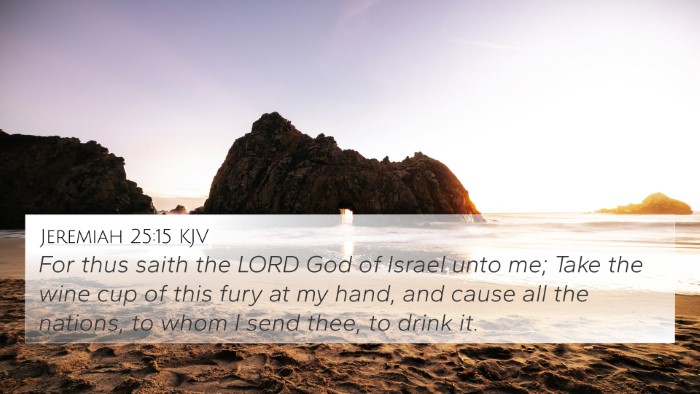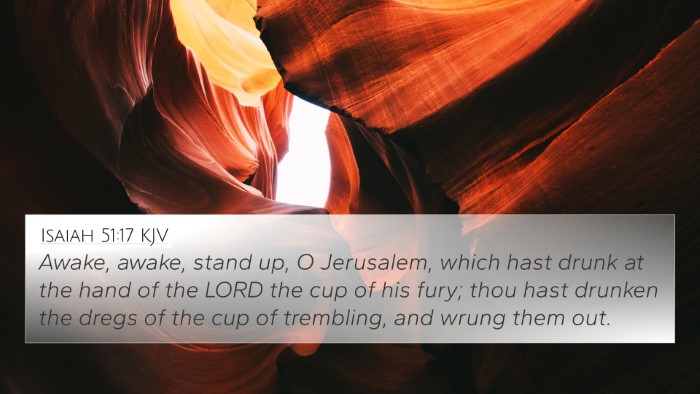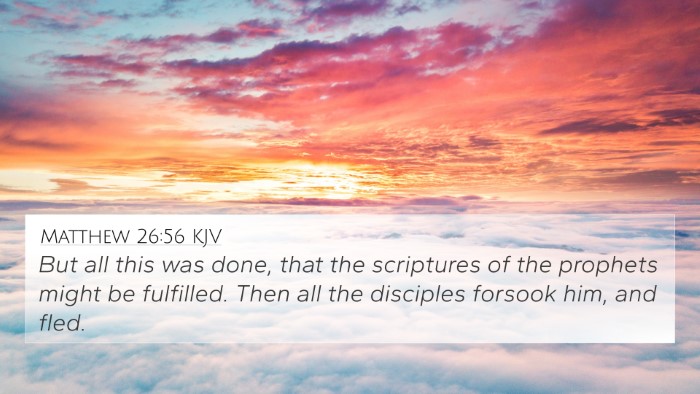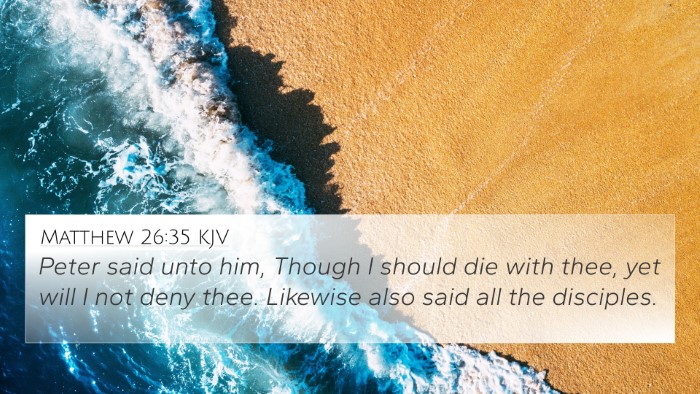Understanding Matthew 20:22
Matthew 20:22 states:
"But Jesus answered and said, Ye know not what ye ask. Are ye able to drink of the cup that I shall drink of, and to be baptized with the baptism that I am baptized with?"
This verse captures a pivotal moment in the dialogue between Jesus and his disciples, particularly focusing on the request made by James and John to sit at His right and left in His kingdom. Below, we summarize the insights from prominent biblical commentaries to provide a deeper understanding of this verse.
Summary of Insights from Public Domain Commentaries
Matthew Henry's Commentary
Matthew Henry emphasizes the seriousness of the disciples' request and notes that they display a lack of understanding regarding the nature of Christ's kingdom. In this context, the "cup" symbolizes suffering and sacrifice, suggesting that true discipleship involves enduring trials as Jesus did. Henry highlights that Jesus challenges their readiness to participate in His sufferings, indicating that glory is preceded by suffering.
Albert Barnes' Notes
Albert Barnes provides a detailed analysis of the term "cup," explaining that it refers to the hardships and agonies that Jesus was about to face. He suggests that the "baptism" mentioned represents the overwhelming trials He would endure. Barnes asserts that the disciples' ambition to share in divine honor must be accompanied by a willingness to share in suffering, focusing on the theme that God’s reward is best understood through testing and trials.
Adam Clarke's Commentary
Adam Clarke offers a practical interpretation, pointing out that Jesus's question serves as a warning against presumptuous desires for power. Clarke illustrates how the cup signifies temptation, judgment, or a calling that requires a deep commitment. He encourages readers to recognize the true cost of following Christ, as it often involves significant personal sacrifice.
Cross-References to Matthew 20:22
- Matthew 26:39: Jesus prays in Gethsemane, expressing the anguish associated with His impending sacrifice.
- Luke 12:50: Jesus speaks of a "baptism" He must undergo, alluding again to His suffering.
- John 18:11: Jesus refers to drinking the cup given by the Father, emphasizing obedience in the face of suffering.
- Romans 8:17: Paul teaches that suffering precedes glory for believers, mirroring Jesus's experience.
- 2 Timothy 2:12: This verse notes that if we endure, we will reign, affirming the principle of sharing in Christ's sufferings.
- Philippians 3:10: Paul expresses his desire to know the fellowship of Christ's sufferings, paralleling the theme in Matthew 20:22.
- Hebrews 5:8: Jesus learned obedience through suffering, reinforcing the connection between hardship and divine purpose.
Thematic Connections
Matthew 20:22 connects thematically with various scriptures that explore concepts of sacrifice, discipleship, and the pursuit of heavenly rewards. These connections highlight that the path to glory is often paved with trials and a willingness to bear the burdens of faith.
Implications for Discipleship
In contemplating Matthew 20:22, believers are reminded of the cost of following Jesus. The call to discipleship is not merely a call to glory, but a call to partake in the sufferings that exemplify Christ's life and mission. The insights from the commentaries encourage a deeper reflection on what it means to be truly dedicated to the service of Christ.
Conclusion
Understanding Matthew 20:22 prompts reflection on personal faith journeys and the nature of Christ’s sacrifice. Through cross-referencing with other biblical texts, one can uncover a nuanced understanding of suffering, glory, and the essence of true discipleship. As believers engage with these foundational themes, they are equipped to navigate their own experiences of faith with wisdom and insight.

